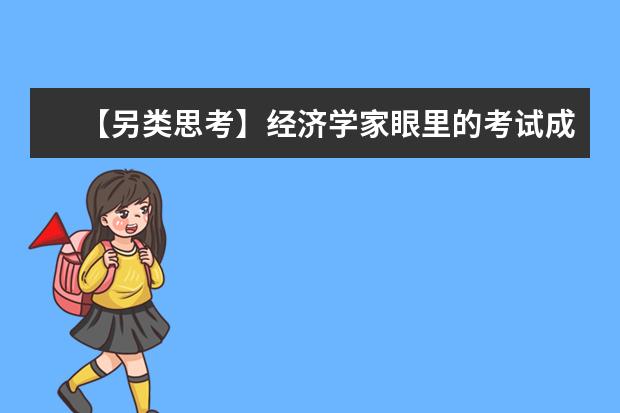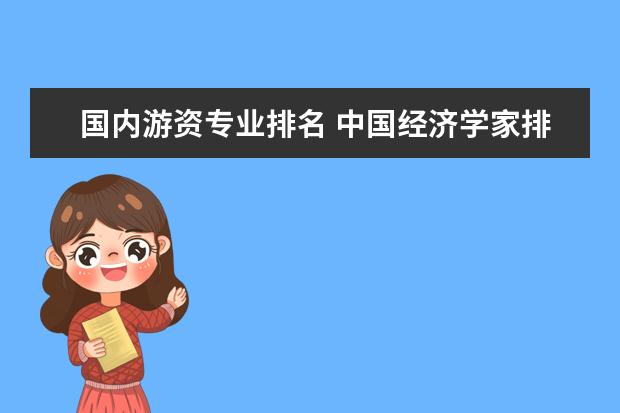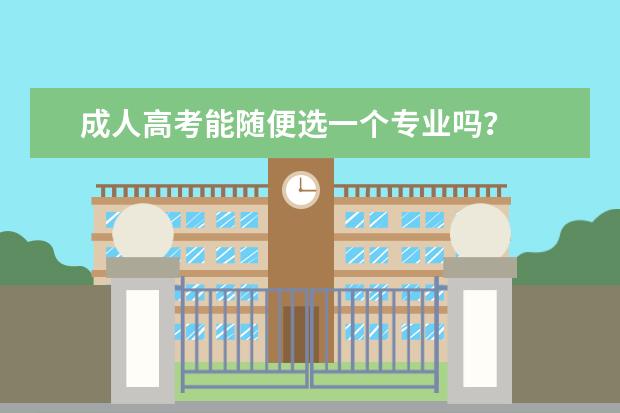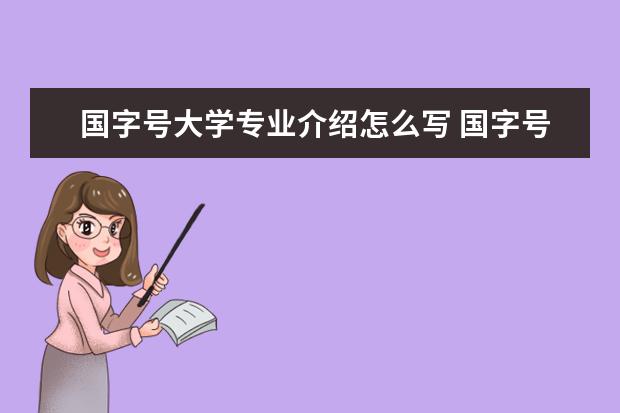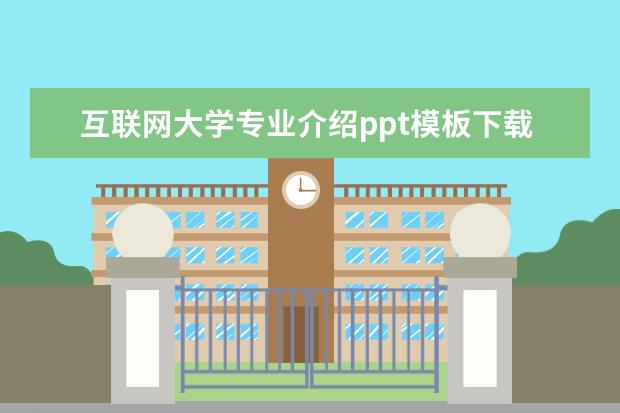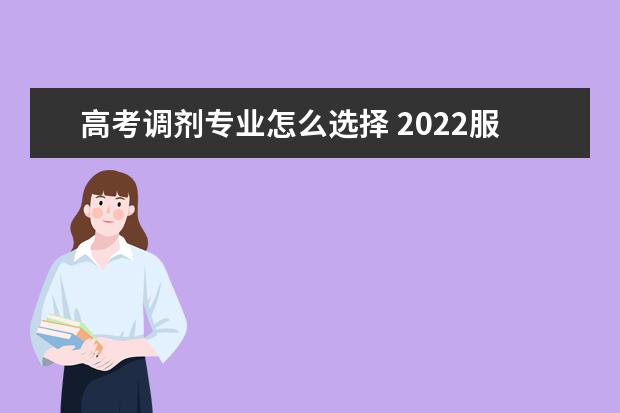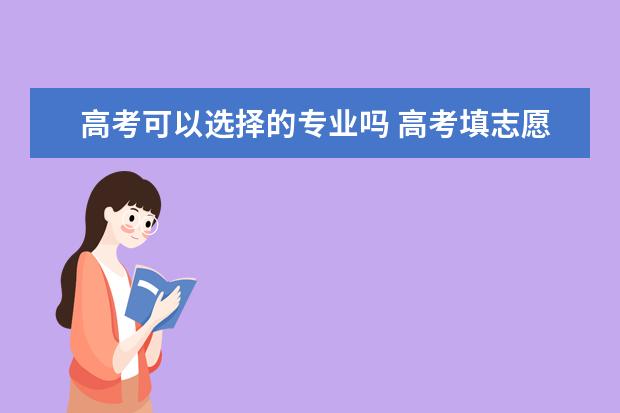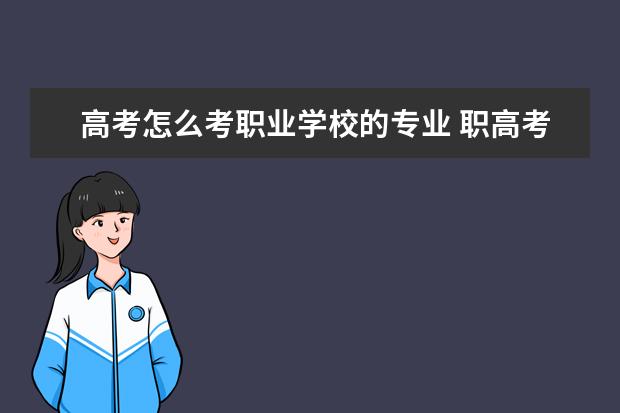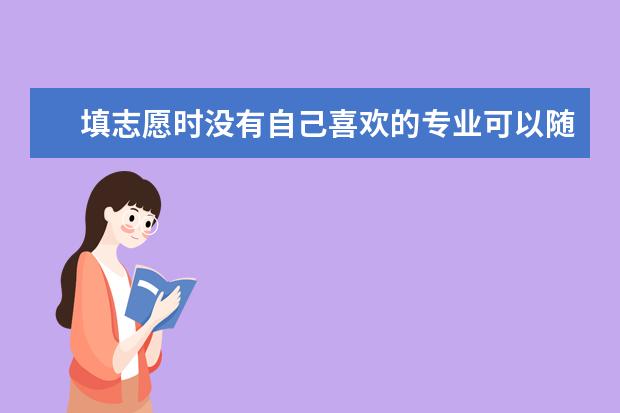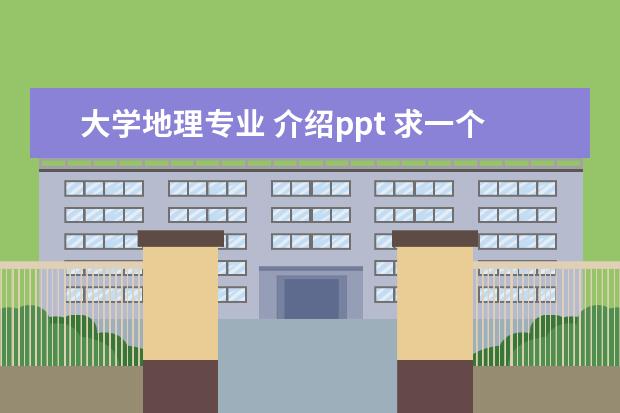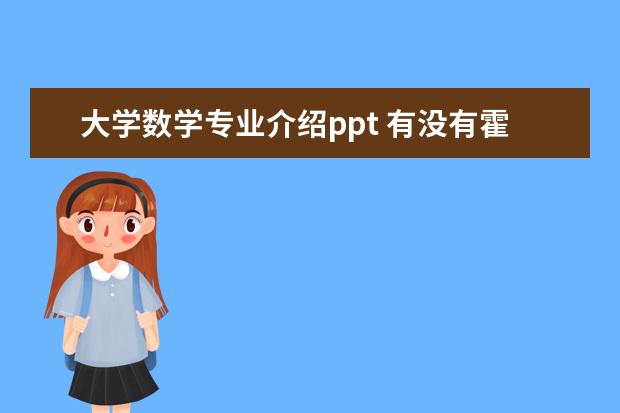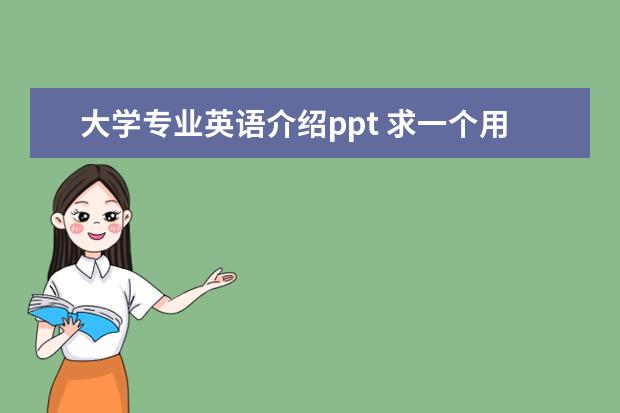今天蜕变学习网小编整理了大学专业财经介绍英文 随便一个经济学家的英文介绍,希望在这方面能够更好的帮助到考生及家长。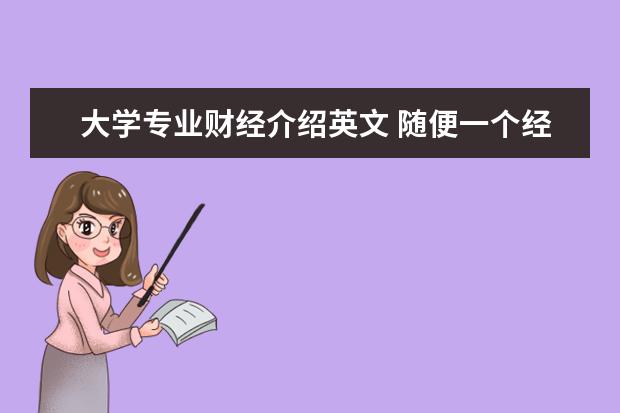
随便一个经济学家的英文介绍
(David Ricardo, 1772-1823)
The brilliant British economist David Ricardo was one of the most important figures in the development of economic theory. He articulated and rigorously formulated the "Classical" system of political economy. The legacy of Ricardo dominated economic thinking throughout the 19th Century.
David Ricardo's family was descended from Iberian Jews who had fled to Holland during a wave of persecutions in the early 18th Century. His father, a stockbroker, emigrated to England shortly before Ricardo's birth in 1772. David Ricardo was his third son (out of seventeen!).
At the age of fourteen, after a brief schooling in Holland, Ricardo's father employed him full-time at the London Stock Exchange, where he quickly acquired a knack for the trade. At 21, Ricardo broke with his family and his orthodox Jewish faith when he decided to marry a Quaker. However, with the assistance of acquaintances and on the strength of his already considerable reputation in the City of London, Ricardo managed to set up his own business as a dealer in government securities. He became immensely rich in a very short while. In 1814, at the age of 41, finding himself "sufficiently rich to satisfy all my desires and the reasonable desires of all those about me" (Letter to Mill, 1815), Ricardo retired from city business, bought the estate of Gatcomb Park and set himself up as a country gentleman.
Egged on by his good friend James Mill, Ricardo got himself elected into the British parliament in 1819 as an independent representing a borough in Ireland, which he served up to his death in 1823. In parliament, he was primarily interested in the currency and commercial questions of the day, such as the repayment of public debt, capital taxation and the repeal of the Corn Laws. (cf. Thomas Moore's poems on Cash, Corn and Catholics)
Ricardo's interest in economics was sparked by a chance reading of Adam Smith's Wealth of Nations (1776) when he was in his late twenties. Bright and talkative, Ricardo discussed his own economic ideas with his friends, notably James Mill. But it was only after the persistent urging of the eager Mill that Ricardo actually decided to write them down. He began in 1809, authoring newspaper articles on currency questions which drew him into the great Bullionist Controversy that was raging at the time In that affair, he was a partisan of the Bullionist position, which argued for the resumption of the convertibility of paper money into gold. He wrote a pair of tracts (1810, 1811) articulating their arguments and outlining what has since become known as the "classical approach" to the theory of money.
In these very same tracts, Ricardo also suggested the impossibility of a "general glut" -- an excess supply of all goods -- in an economy. This provoked the Rev. Thomas Robert Malthus to respond to Ricardo. The course of this debate continued in their extensive correspondence with each other, culminating in a series of notes Ricardo wrote on Malthus's 1820 Principles (these were later published posthumously as Notes on Malthus). Ricardo stood firm in his support of Say's Law and di*issed Malthus's underconsumption thesis as theoretically impossible. Yet, in spite of their disagreements on economic doctrines, they took to each other personally and fostered a legendary friendship. Ricardo even passed on investment tips to Malthus -- the most famous case being when Ricardo urged Malthus to invest in the bond market in anticipation of a British victory at Waterloo. Ever the conservative parson, Malthus declined. Ricardo, as usual, made a killing.
In 1815, Ricardo published his groundbreaking Essay on..Profits. There he introduced the differential theory of rent and the "law of diminishing returns" to land cultivation. Coincidentally, this principle was discovered simultaneously and independently by Malthus, Robert Torrens and Edward West. (more astoundingly, all of them published their tracts within three weeks in February, 1815!) In his 1815 Essay, Ricardo formulated his theory of distribution in a one-commodity ("corn") economy. With wages at their "natural" level, Ricardo argued that rate of profit and rents were determined residually in the agricultural sector. He then used the concept of arbitrage to claim that the agricultural profit and wage rates would be equal to the counterparts in industrial sectors. With this theory, he could show that a rise in wages did not lead to higher prices, but merely lowered profits.
Arguably, a proper theory of value was missing in the 1815 tract. In a one-commodity model, this is not an big issue. But, prodded on by Malthus's critici*s, Ricardo realized that in a multiple-commodity economy, for rents and profits to remain residuals, then prices must be pinned down somewhere. In his formidable treatise, Principles of Political Economy and Taxation (1817), Ricardo finally articulated and integrated a theory of value into his theory of distribution.
For Ricardo, the appropriate theory was the "labor-embodied" theory of value or LTV, i.e. the argument that the relative "natural" prices of commodities are determined by the relative hours of labor expended in their production. Indeed, he began his 1817 book by criticizing Adam Smith's alternatives -- the "labor-commanded" and "adding up" theories of value -- because, he argued, that made value a function of wages and thus income distribution. For Ricardo, this was untenable. In his vision, value was independent of distribution, and thus only the "labor-embodied" theory made sense.
However, Ricardo realized that when the question of capital comes in, a problem arose: specifically, as different industries apply different amounts of capital per laborer, then the rate of profit will also differ across industries. Ricardo understood that if he then assumed that the rates of profit across different industries were equalized (as free competition would imply), then, mathematically, relative prices would now vary with wages -- exactly what he had criticized Smith for! Ricardo realized that the labor theory of value would only work if the degree of capital-intensity was the same across all sectors, casting doubt on the generality of his cherished theory.
Ricardo proposed two ways out of this dilemma. The first was the empirical argument that firms apply capital in a roughly proportional manner to the amount of labor invested. In this case, the resulting prices when profits are equalized would not differ much from the values implied by the LTV. This is what Stigler (1958) has called Ricardo's "93% labor theory of value". The second solution was to find a commodity which has the average capital per worker, so that its price would reflect labor-embodied value and thus not vary with changes in distribution. He called this the "invariable standard of value" . If one can find what this "standard" commodity is, Ricardo argued, then the rest of the *ysis is simple. One can, say, change technology, trace the change in value of the standard commodity, and then extrapolate the change in value for all other commodities by the degree to which their capital composition deviates from this standard. Despite his search, Ricardo never found this standard commodity. On his death, an incomplete paper entitled "The Invariable Standard of Value" was found on his desk. Eventually, Karl Marx (1867) proposed one way out of it, but the proper solution would have to wait until Piero Sraffa (1960).
A little tripped up on value, Ricardo (1817) pressed on nonetheless. With prices (more or less) pinned down by the LTV, he restated his old theory of distribution. Dividing the economy into classes of landowners (who spend their rental income on luxuries), workers (who spend their wage income on necessities) and capitalists (who save most of their profit income and reinvest it), Ricardo argued showed once again how the size of profits is determined residually by the extent of cultivation on land and the historically-given real wage. He then added on a theory of growth. Specifically, with profits determined in the manner given above, then the amount of capitalist saving, accumulation and labor demand growth could also be deduced. This, in turn, would increase population and thus bring more land, of less and less quality, into cultivation. As the economy continued to grow, then, by his theory of distribution, profits would be eventually squeezed out by rents and wages. In the limit, Ricardo argued, a "stationary state" would be reached where capitalists will be making near-zero profits and no further accumulation would occur.
Ricardo suggested two things which might hold this law of diminishing returns at bay and keep accumulation going at least for a while: technical progress and foreign trade. On technical progress, Ricardo was ambivalent. One the one hand, he recognized that technical improvements would help push the marginal product of land cultivation upwards and thus allow for more growth. But, in his famous Chapter 31 "On Machinery" (added in 1821 to the third edition of his Principles), he noted that technical progress requires the introduction of labor-saving machinery. This is costly to purchase and install, and so will reduce the wages fund. In this case, either wages must fall or workers must be fired. Some of these unemployed workers may be mopped up by the greater amount of accumulation that the extra profits will permit, but it might not be enough. A pool of unemployed might remain, placing downward pressure and wages and leading to the general misery of the working classes. Technical progress, for Ricardo, was not a many-splendored thing.
On foreign trade, Ricardo set forth his famous theory of comparative advantage. Using his famous example of two nations (Portugal and England) and two commodities (wine and cloth), Ricardo argued that trade would be beneficial even if Portugal held an absolute cost advantage over England in both commodities. Ricardo's argument was that there are gains from trade if each nation specializes completely in the production of the good in which it has a "comparative" cost advantage in producing, and then trades with the other nation for the other good. Notice that the differences in initial position mean that the labor theory of value is not assumed to hold across countries -- as it should be, Ricardo argued, because factors, particularly labor, are not mobile across borders. As far as growth is concerned, foreign trade may promote further accumulation and growth if wage goods (not luxuries) are imported at a lower price than they cost domestically -- thereby leading to a lowering of the real wage and a rise in profits. But the main effect, Ricardo noted, is that overall income levels would rise in both nations regardless.
With his 1817 treatise, Ricardo took economics to an unprecedented degree of theoretical sophistication. He formalized the Classical system more clearly and consistently than anyone before had done. For his efforts, he acquired a substantial following in Great Britain and elsewhere -- what became known as the "Classical" or "Ricardian" School. His system, however, was improved very little by his disciples. Perhaps only John Stuart Mill (1848) and Karl Marx (1867-94) added insights of any great weight.
Ricardo's theory gradually fell out of favor, and died a slow death soon after the Marginalist Revolution of 1871-74. But research continued in some corners of the world, e.g. Vladimir Dmitriev (1898). Only much later did Piero Sraffa (1960) finally solve the "invariable measure of value" problem and re-ignited interest in Ricardo's theory. The "Neo-Ricardian" research program continues to advance today.
英语专业介绍?

1. 请介绍一下大学英语专业的主要内容和要求。
想当老师,就填师范的,瓯江这个英语专业,不是师范的吧?是商务英语,外贸方面的。真的想当老师的话,就坚定自己的信念,不要跟着别人走。祝你好运
2. 英语专业毕业能做什么
英语专业毕业生的就业方向主要集中在以下几个领域: *** 机关、新闻机构、外资企业、进出口公司、合资企业、中外旅行社、各类学校、培训机构等。
1、培前雀李训师
不过培训机构现在招聘的及格线是必须有留学经验。在学校任职可以享受固定的寒暑假,在培训机构任职的寒暑假会比较忙碌,但薪资可观。
2、HR or Communication Assistant
HR经理和Communication经理都是含金量挺高的职位,HR Assistant一开始可能会做比较打杂的事情,偏向operation方面,比方说建立员工的personal file,整理各种档案资料。
3、译员
需要极强的英语能力,尤其对口译要求高。招聘条件明令标明是英语专业。
4、事业编制单位
例如,高校教师、初高中教师。由于,英语岁晌目前仍作为小、初、高考试科目,因此各个学校对英语教师的需求量还是很大的(许多外国语大学的附属中学、附属小学也会开设小语种课程)。如果有同学有意向从事校内教师,需要提前考取相关学段的教师资格证。
5、企业国际部、报社国际部
可以在国际部负责英语相关部门和英语版面的内容运营、内容审校工作等。
6、外贸
是比较适合英专生的一行,应届毕业生一般会从业务员或助理开始,工作包括平台维护,跟进客户,外商洽谈慧迟等,薪资由底薪和成交订单的提成组成,能者多劳。
顾问类
这类顾问包括留学顾问,和英语培训学校的课程顾问等,从事与英语相关的行业,但实际工作内容与英语相关不是很大,就像一些留学顾问都没有留过学,一些课程顾问也只能和外交简单交流。但有一类留学顾问是代表海外某学校,面向某一区域招生,工作难度较大,但工资是一般留学顾问的两三倍。
3. 用英语介绍商务英语专业
The main direction of business English is to cultivate a solid English language foundation and a systematic knowledge of international business management theory.
翻译:商务英语专业方向主要培养具有扎实的英语语言基础和较系统的国际商务管理理论知识。
It has strong practical skills and can be translated in foreign trade, foreign affairs, culture, news publishing, ecation, scientific research, touri *** and other departments. Senior English professionals in management, teaching, and research.
翻译:具有较强的实践技能,能在外贸、外事、文化、新闻出版、教育、科研、旅游等部门从事翻译、管理、教学、研究工作的英语高级专门人才。
The concept of "Business English" has been starting from today, and the starting time is not short.
翻译:“商务英语”的概念从提出到今天,起始时间已经不短了。
However, under the trend of internationalization, the English learning market is surging. Today, many training institutions have used Business English as their main training program.
翻译:但在国际化大趋势下,英语学习市场风起云涌的今天,很多培训机构又把商务英语作为了其主要的培训项目。
4. 商务英语专业用英语描述
The main direction of business English is to cultivate a solid English language foundation and a systematic knowledge of international business management theory.
翻译:商务英语专业方向主要培养具有扎实的英语语言基础和较系统的国际商务管理理论知识。
It has strong practical skills and can be translated in foreign trade, foreign affairs, culture, news publishing, ecation, scientific research, touri *** and other departments. Senior English professionals in management, teaching, and research.
翻译:具有较强的实践技能,能在外贸、外事、文化、新闻出版、教育、科研、旅游等部门从事翻译、管理、教学、研究工作的英语高级专门人才。
The concept of "Business English" has been starting from today, and the starting time is not short.
翻译:“商务英语”的概念从提出到今天,起始时间已经不短了。
However, under the trend of internationalization, the English learning market is surging. Today, many training institutions have used Business English as their main training program.
翻译:但在国际化大趋势下,英语学习市场风起云涌的今天,很多培训机构又把商务英语作为了其主要的培训项目。
(4)英语专业介绍扩展阅读:
商务英语专业就业前景:
随着中国入世,众多的外国企业将在中国寻求发展的机会,而中国的企业迎来了走向世界的机遇,商业外贸领域获得了长足的发展。在这种环境下,企业之间的相互沟通和交流成为了彼此合作的重要条件。
与此同时,随着我国外贸体制改革的深化,出口经营资格实行了登记和核准制,这将使更多的企业拥有自 *** 。据调查,从目前我国的外贸出口量估计,未来五年内具有外贸出口权的公司将在现有的基础上再增加18万家,到那时我国将有36万家以上的具有进出口权的公司。
根据我国现有的具有进出口权的公司所拥有的人才的平均比例算,我国至少还需要180万的外贸人才为企业服务,而其中对商务英语人才的需求占的比重相当大。据预测,在未来10年里,英语类人才尤其是商务英语专业的人才将是最受欢迎的10类热门的人才之一。
5. 英语专业就业方向就业前景怎么样
1、专业介绍:
英语专业在研究生阶段一般划分为3个主要方向(硕士点):文学、语言学和翻译。其中,文学以感性知识(文学评论等)为主,适合文科背景较强的考生跨专业考语言学以理性的理论知识为主,与各学科结合紧密,文理科背景的考生都适合跨专业考翻译介于二者之间,既需要理论知识又需要对语言的感性认识和实践,除专业翻译领域之外,还是比较适合对文字有感悟力的文科考生报考。
2、推荐院校:
北京大学、南京大学、厦门大学、上海外国语大学、北京第二外国语学院等院校。
3、就业前景:
与英语专业有关的外贸、外交、海关、旅游等行业获得前所未有的发展,使得我国对英语人材的需求数量越来越大。据劳动人事部统计,英语专业毕业生的就业率一直在各专业中居于前10位,即使在英语人人能说的今天,高端的英语人才的就业率仍然保持90%以上。
6. 什么是应用英语专业
1应用英语专业基本信息
学历层次:专科
专业名称:应用英语
专业代码:660102
所属门类:文化教育
所属学科:语言文化类
培养方向:外贸英语、外事管理、学前教育、学前英语、英、泰语、英语翻译、英语教育、应用翻译、幼儿教育、幼儿双语、幼儿英语、进出口业务、文化与翻译、英、老挝语、国际商务管理、国际商务交际、少儿英语教育、涉外酒店管理、双语学前教育、国际会议与展览、旅游与酒店管理、涉外旅游、涉外文秘、双语幼儿、随行翻译、法律、翻译、工业、海事、会展、机电、教育、经贸、旅游、汽车、商务、涉外、师范、石化、外贸、外事、武术、计算机、电子商务、国际工程、国际贸易、国际商务、国际物流、会展管理、经贸翻译、酒店管理、旅游英语、商务翻译、商务英语、少儿英语、涉外会计、涉外酒店、国际商务交际英语
同一个专业不同大学其学习方向、开设课程等不尽相同,以下提供开设应用英语专业的部分院校的专业介绍,仅供参考。具体信息以学校网站公布为准。
2天津体育学院应用英语专业介绍
培养目标:培养适应我国教育发展需要,德、智、体全面发展,具有一定的英语语言基础、较强的听说、翻译能力,能从事翻译、管理和中、小学外语教学工作的实用型、技能型专门人才。
主干课程:大学英语精读、英语阅读、英美国家概况、翻译理论与实践、英语教学理论与方法、外事礼仪、英语写作、体育英语、计算机基础等。
3河北北方学院应用英语专业介绍
培养掌握英汉口笔互译方面的基本理论和常用技巧,独立完成翻译任务的高级专门应用型人才。
主要课程:英语语音学,英语语法学,英语词汇学,英语听力,英语口语,英语精读、泛读,现代语言学,英、美文学史及英美文学作品选读,英汉(口、笔)互译。英语国家概况,英文写作,英、美文学史,英美文学作品选读,英汉互译等。
就业方向:外事机构、外企、合资企业、大、中学校。
4河北民族师范学院应用英语专业介绍
应用英语专业拟在基础阶段开设英语专业基础课程,在高年级阶段开设国际商务、实用翻译和国际旅游等专业方向的课程。
商务方向课程包括:商务英语、外企实用口语、商务翻译、商务英语写作、跨文化交际、国际商务沟通、商务口译、涉外经贸实务等;
翻译方向课程包括中外翻译理论、翻译史、商务翻译、商务口译、导游翻译、法律文件翻译、跨文化交际、礼宾礼仪、高级英语口语艺术等。
更对院校的应用英语专业介绍请进学校招生网站查询。
5应用英语专业指数:
2013年本专业高校毕业人数为20000-22000人,其中男12%、女88%,2013年本专业高校招生男女比例为文科70%、理科28%、文理综合2%,近几年本专业的就业率分别为2011(80%-85%)、2012(80%-85%)、2013(85%-90%)。
6应用英语专业相近专业:
语言文化类、汉语、应用日语、应用俄语、应用德语、应用法语、应用韩语、商务英语、旅游英语、商务日语、旅游日语、文秘、文物鉴定与修复、文化事业管理、文化市场经营与管理、图书档案管理、应用西班牙语、应用 *** 语、应用意大利语、应用越南语、应用泰国语、应用缅甸语、应用柬埔寨语、应用老挝语、中国少数民族语言文..、书法教育、茶文化。
7应用英语专业优势院校
吉林财经大学继续教育学院、义乌工商职业技术学院、浙江经贸职业技术学院、安徽外国语学院、西安外事学院、福建华南女子职业学院、宁波大红鹰学院、汉口学院、宁波教育学院、海南外国语职业学院、湖南科技经贸职业学院。
7. 英语专业怎么自我介绍
以下为英文专业介绍范文,可按照模板来:
本人毕业于xx大学英语专业.对英语比较偏爱,具备较强的英语听、说、读、写、译等能力;擅长撰写和回复英文商业信函,熟练运用网络查阅相关英文资料并能及时予以翻译。对国贸易事务有所了解,并熟悉国贸单证的*。通过学校日常培训和寒暑假的社会实践活动, 熟悉办公室软件的操纵;精通办公自动化,熟练操作windows xp能独立操作并及时高效的完成日常办公文档的编辑。
本人性格稳重、待人热情、真诚。工作认真负责,积极主动,能吃苦耐劳。有较强的交际能力、实际动手能力和团体协作精神,能迅速的适应各种环境,并融合其中。积极参加学院社团活动,并担任过分院组织部和社会实践部的干事,配合部长工作。
英语专业的专业描述?

Ⅰ 商务英语专业的专业描述
商务英语本科专业
坚持“重基础、重实践、重创新、重文化”的人才培养思想,利用学院英语学科优势,依托大学经济学、管理学等财经类强势学科资源,坚持“英语+商务+人文素养”办学特色,以英语与商务有机团扰瞎交叉融合为核心,以国际贸易英语和国际金融英语为特色,要求学生掌握国际金融、国际贸易、人力资源管理、市场营销、商务谈判、商务沟通等基本理论和基础知识,具有很强的英语语言交际能力和从事国际商务工作的必塌空备能力。本专业不同于传统的英语专业,旨在培养既有扎实的英语知识与技能,又有丰富的经济、管理、国际商务专业知识,同时具有国际视野和跨文化沟通交流能力的高素质复合型应用型商务英语专门人才。学生能在国际环境中熟练使用商务英语从事经贸、金融、管理等领域的国际商务工作。
Ⅱ 上外的英语专业介绍
英语文学专业以 基础课程和英美文学相关课程为主
英语翻译专业 除了基础课程文学欣赏还多了联合翻译啊,商务翻译啊,文学翻译这样相关的课程.
高翻另当别论,上外高翻全球排名前十...这个和本科距离不是一般遥远.
Ⅲ 在求职简历中需要描述自己的专业,英语专业应该怎么描述啊
简单介绍一下主要专业课程设置,同时准备好自己最感兴趣的课程及收获应对面试
Ⅳ 商务英语专业描述
商务英语是以适应职场生活的语言要求为目的,内容涉及到商务活动的方方面面。商务英语课程不只是简单地对学员的英文水平、能力的提高,它更多地是向学员传授一种西方的企业管理理念、工作心理,甚至是如何和外国人打交道,如何和他们合作、工作的方式方法,以及他们的生活习惯等,从某种程度上说是包含在文化概念里的。
等级证书的话有商务英语证书(BUSINESS ENGLISH CERTIFICATE)是教育部考试中心和英国剑桥大学考试委员会合作,于1993年起举办的考试。该系列考试是一项语言水平考试,根据公务或商务工作的实际需要,对考生在一般工作环境下和商务活动中使用英语的能力从听、说、读、写四个方面进行全面考查,对成绩及格者提供由英国剑桥大学考试委员会颁发的标准统一的成绩证书。
Ⅳ 填写简历时有项专业描述,我是英语专业的怎么描述啊
Major: English
Ⅵ 请介绍英语专业相关内容,谢谢
首先恭喜你被英语专业录取,现在咱俩也算是同行了,呵呵,我也是英语专业的学生,希望我说的能对你有些帮助。
英语专业全称叫做“英语语言文学”专业。
先说课程设计,整个大学四年里面共分为公共基础课、公共选修课、专业(基础)课、专业限选课四种。
公共基础课就是那些马克思主义型的各种思想政治类学科,还有就是计算机,所有专业都学的必修课。
公共选修课就是学校根据学生兴趣开设的各类课程,这期间没有专业类别限制,什么都有,根据自己的兴趣去选课。选修课是必须上的,需要修够选修课学分才能毕业。
专业(基础)课,其实是专业基础课和专业课二者合一的,分为理论课和实训课两大类,对于英语专业来说主要有以下几门专业(基础)课:
理论类:综合英语(基础英语)、第二外语、英语语法、英语阅读、英语口语、英语听力、英语语音、英语写作、商务英语、高级英语、英美文学作品选读、英美国家概况、英美文学简史、求职口语、语言学概论、跨文化交际、英语翻译、英语口译等课程
实训类:口语实训、翻译实训等课程
各院校大致开设的课程也就是这些,但是每个院校根据培养模式多多少少会有一些不同,但是这些主干课程都必须有的。
刚才说的是课程设置,大学本科的课程一般会在前三年内完成,第四年的李燃前半年,也就是秋季学期会进行毕业实习,毕业实习也算作一门公共课,要有成绩的,同样没有实习成绩也不能毕业。后半年也就是春季学期就是进行毕业论文的撰写和答辩工作,毕业实习、毕业论文、毕业答辩都通过了,你的成绩也合格了,才能准许你毕业,发放毕业证书和学位证书。大学本科毕业取得的学位是学士学位,所以颁发学士学位证书。
下面说英语专业在大学四年期间的考试,期末考试我就不说了,期末考试就是百分制,60分及格,在大学里面各科考试一定要在60分以上,如果不及格要进行补考的,如果补考不及格还要重修,所以说在大学里面一定要好好学习,成绩这方面绝对不能懈怠。而且你的成绩还要跟学位挂钩,所以能往高分打就往高分打,大学里面的学位不是百分之百授予的,所以到毕业时学校就会有一些政策要免去一些学生的学位,比如说GPA不达到2.0以上的等等。
现在我在这说说专业间要考的证书或者学科间要选学的知识,为今后找工作做准备:
学科内基本证书:全国大学英语四级(CET-4)、全国大学英语六级(CET-6)、全国大学英语专业四级(TEM-4)
学科内其他证书:全国大学英语专业八级(TEM-8)、英国剑桥商务英语中(高)级(BEC-V/H)、全国翻译等级认证(CATTI)
以上说的这些建议在大学期间都要考一下,基本都是英语专业必须拿到的,能拿到的就拿,这样为你的找工作添加筹码。
学科间证书:这就根据你的工作以及今后发展需要了,我给你列举几个英语专业相关的
国家计算机等级证书、教师资格证(教育方向)、会计从业资格证(会计方向)、涉外文秘资格认证、人力资源管理资格认证(这两个是国家人力资源和社会劳动保障局的,商务方向)、报关(检)员资格证、导游证等。
关于英语专业大致的要点我也就说这么多,希望能对你有些帮助,如果还有什么不明白的像专业知识、今后发展、考研、就业等方面的还可以再问我。
最后祝你好运,有一个充实而又愉快的大学生活,在大学里面最大限度的发挥自己的水平,获得属于自己真正的财富!
Ⅶ 用英语介绍商务英语专业
The main direction of business English is to cultivate a solid English language foundation and a systematic knowledge of international business management theory.
翻译:商务英语专业方向主要培养具有扎实的英语语言基础和较系统的国际商务管理理论知识。
It has strong practical skills and can be translated in foreign trade, foreign affairs, culture, news publishing, ecation, scientific research, touri *** and other departments. Senior English professionals in management, teaching, and research.
翻译:具有较强的实践技能,能在外贸、外事、文化、新闻出版、教育、科研、旅游等部门从事翻译、管理、教学、研究工作的英语高级专门人才。
The concept of "Business English" has been starting from today, and the starting time is not short.
翻译:“商务英语”的概念从提出到今天,起始时间已经不短了。
However, under the trend of internationalization, the English learning market is surging. Today, many training institutions have used Business English as their main training program.
翻译:但在国际化大趋势下,英语学习市场风起云涌的今天,很多培训机构又把商务英语作为了其主要的培训项目。
Ⅷ 英语专业描述怎么写
The English major has historically involved study of the language itself and its broadest cultural influences, both spoken and written. It's one of the oldest 'modern' degree programs, one whose popularity can change from one generation to the next, and yet still one of the most popular bachelor's degrees in North America.
Ⅸ 商务英语专业用英语描述
The main direction of business English is to cultivate a solid English language foundation and a systematic knowledge of international business management theory.
翻译:商务英语专业方向主要培养具有扎实的英语语言基础和较系统的国际商务管理理论知识。
It has strong practical skills and can be translated in foreign trade, foreign affairs, culture, news publishing, ecation, scientific research, touri *** and other departments. Senior English professionals in management, teaching, and research.
翻译:具有较强的实践技能,能在外贸、外事、文化、新闻出版、教育、科研、旅游等部门从事翻译、管理、教学、研究工作的英语高级专门人才。
The concept of "Business English" has been starting from today, and the starting time is not short.
翻译:“商务英语”的概念从提出到今天,起始时间已经不短了。
However, under the trend of internationalization, the English learning market is surging. Today, many training institutions have used Business English as their main training program.
翻译:但在国际化大趋势下,英语学习市场风起云涌的今天,很多培训机构又把商务英语作为了其主要的培训项目。
(9)英语专业的专业描述扩展阅读:
商务英语专业就业前景:
随着中国入世,众多的外国企业将在中国寻求发展的机会,而中国的企业迎来了走向世界的机遇,商业外贸领域获得了长足的发展。在这种环境下,企业之间的相互沟通和交流成为了彼此合作的重要条件。
与此同时,随着我国外贸体制改革的深化,出口经营资格实行了登记和核准制,这将使更多的企业拥有自 *** 。据调查,从目前我国的外贸出口量估计,未来五年内具有外贸出口权的公司将在现有的基础上再增加18万家,到那时我国将有36万家以上的具有进出口权的公司。
根据我国现有的具有进出口权的公司所拥有的人才的平均比例算,我国至少还需要180万的外贸人才为企业服务,而其中对商务英语人才的需求占的比重相当大。据预测,在未来10年里,英语类人才尤其是商务英语专业的人才将是最受欢迎的10类热门的人才之一。
Ⅹ 用英语介绍自己的专业
I majored in Environmental Art and Design, who will brief you in English, Environmental Art Design? Must be bilingual. U.S. English teacher want us to do about U.S. professional PPT .. on to find some information on environmental art and design information ..囧..
1. Let us look at the Master's work.
2. ... There is a member of our head are one of ...
3. These are our work.
4. Environment Art and Design, including interior design, building design and landscape design.
相信我,一定是对的
南京财经大学英文

Nanjing University Of Finance & Economics
南京财经大学,位于江埋轮*苏省南京市,是一所以经济管理类学科为主,经济学、管理学、法学、工学、文学、理学等多学科支撑配套、协调发展的江苏省属重点建设大学,入选全国粮食行业(南京)教育培训基地、江苏省省级博弯逗士立项建设单位。
截至2022年9月,学校拥有仙林桐兆、福建路和桥头3个校区,占地面积120.7万平方米,总建筑面积71.36万平方米;设有23个教学机构,开设49个本科专业;拥有1个博士后流动站,13个硕士学位授权一级学科,16个硕士专业学位授权点;有普通本科在校学生16000余人,在校博士、硕士研究生3800余人;有专任教师1300余人。
以上,就是蜕变学习网小编给大家带来的大学专业财经介绍英文 随便一个经济学家的英文介绍全部内容,希望对大家有所帮助!
免责声明:文章内容来自网络,如有侵权请及时联系删除。
本文标题:大学专业财经介绍英文 随便一个经济学家的英文介绍
wap地址: https://m.tbqqq.com/zixun/354677.html
